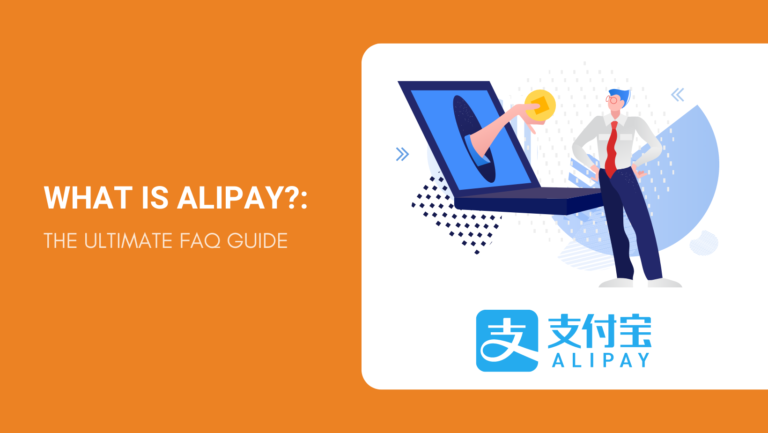In this Ultimate FAQ Guide, we will cover all aspects which might be useful to you, including Alipay’s features, story of Jack Ma, etc.
If you are a Shopify dropshipper, Amazon seller, or seller of other E-commerce platforms, the brief introduction of Alipay here will facilitate your business related to the Chinese market.
If you intend to hire a professional dropshipping agent like NicheDropshipping to source products from the Chinese market in an easy and inexpensive manner, some knowledge about Alipay will be helpful.
Let’s begin!
What Is Alipay?
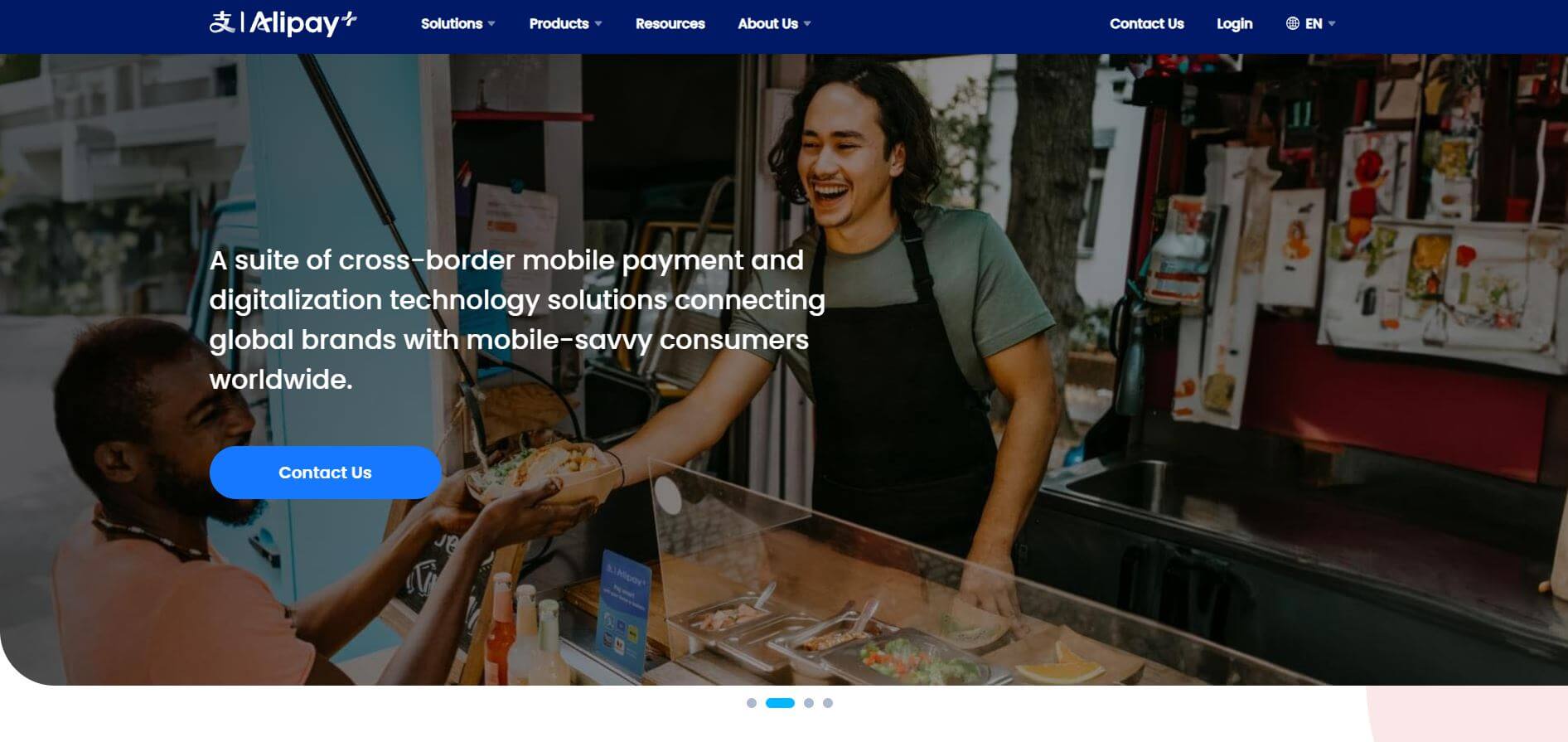
Alipay is one of China’s most widely used digital payment platforms. It was launched in 2004 by Alibaba Group, the eCommerce giant founded by Jack Ma.
Today, it’s operated by Ant Group, Alibaba’s financial affiliate, and has grown into a global fintech powerhouse.
Think of it like China’s version of PayPal or Apple Pay—but even more integrated into everyday life.
With Alipay, users can shop online, pay in stores, send money, book transport, and more, all within a single app.
It’s especially popular for:
- Online shopping on platforms like Alibaba, Taobao, and Tmall
- In-person payments in China (by scanning QR codes)
- Sending or receiving money domestically or internationally
- Paying Chinese suppliers if you’re involved in eCommerce or dropshipping
In 2025, Alipay supports both Chinese residents and international users, making it a valuable tool for anyone buying from China or traveling there.
Can I Trust Alipay?
Yes, Alipay is considered a safe and reliable payment platform, especially within China.
It’s backed by Ant Group, one of the largest financial tech companies in the world, and is used by over a billion users globally.
From large eCommerce stores to local food stalls in China, millions of transactions are processed through Alipay every day.
Here’s why it’s trusted:
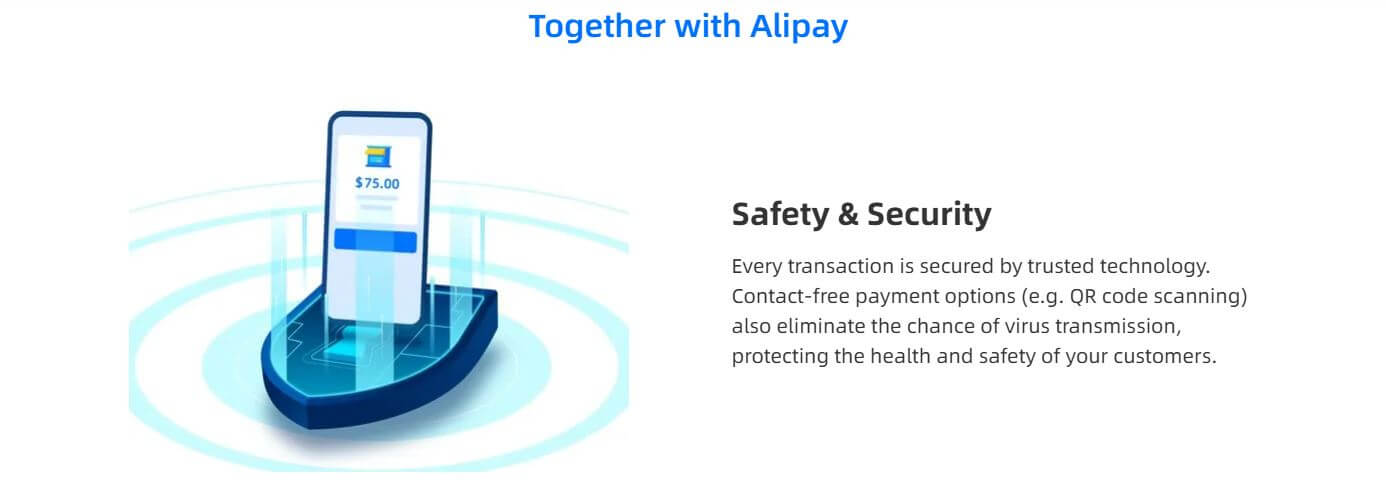
- Secure payment system: Alipay uses encryption, real-time fraud detection, and biometric authentication (like facial recognition or fingerprint login) to protect users.
- Escrow service for buyers: When you shop on platforms like Alibaba or Taobao, Alipay holds your payment in escrow until you confirm that the product was delivered as expected. This adds an extra layer of buyer protection.
- Regulated in China: Alipay operates under China’s financial regulations and has strong government oversight, especially around user data and payment systems.
That said, always take standard precautions:
- Double-check the recipient details before sending money.
- Use it on official websites and apps.
- Don’t click suspicious links asking for your Alipay login or payment info.
If you’re working with suppliers or agents in China, Alipay is one of the safest ways to send payments, especially when compared to direct bank transfers.
Can You Use Alipay as a Foreigner in 2025?

Yes, as of 2025, foreigners can use Alipay in China, even without a Chinese bank account or local phone number.
Alipay now offers an international version of its app designed specifically for tourists and foreign visitors.
It allows you to register with your overseas phone number and link international credit or debit cards such as Visa, Mastercard, JCB, or Discover.
How to Set Up Alipay as a Foreigner:
- Download the Alipay app on iOS or Android
- Sign up using your international phone number
- Switch to the international version within the app settings
Link your international credit or debit card - Complete identity verification with your passport for higher spending limits
Once set up, you can pay by scanning QR codes, make online purchases, and use a wide range of services—from booking taxis to paying at restaurants and shops.
A Few Tips:
- Have a backup payment method, just in case your card isn’t accepted
- Use cards with low foreign transaction fees to save on currency conversion
- Check your transaction limits, especially if you haven’t completed full verification
Alipay has made it much easier for international visitors to navigate payments in China—making it a handy tool whether you’re traveling or sourcing products locally.
How to Set Up and Use Alipay (Step-by-Step)
Alipay makes it easy for foreigners to pay like a local in China. Here’s how to set it up in just a few minutes:
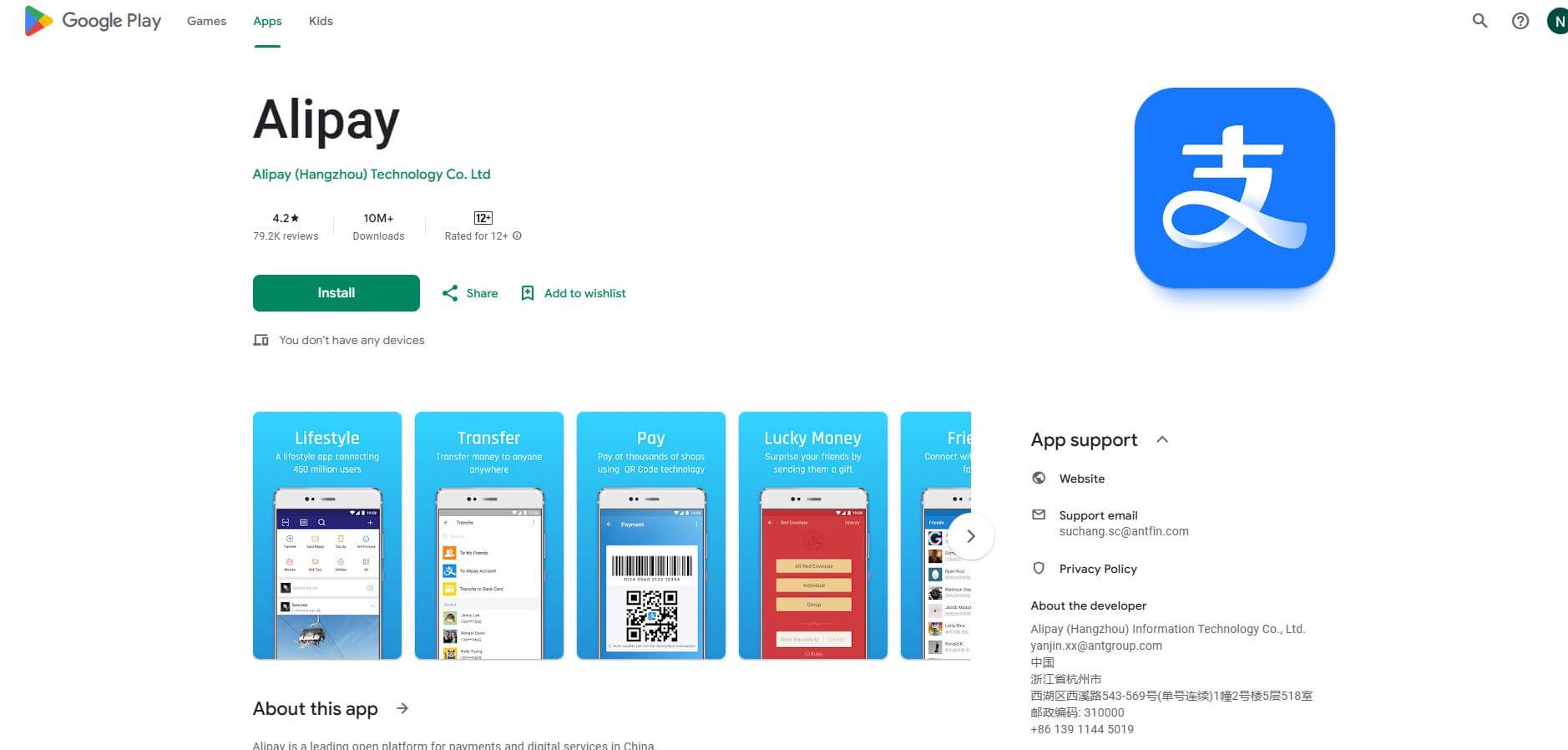
1. Download the Alipay App
Install the official Alipay app from the App Store or Google Play. For best results, download it before you arrive in China.
2. Sign Up with Your Phone Number
Open the app and sign up using your international phone number. You’ll receive a verification code by SMS to confirm your account.
3. Switch to the International Version
After registration, the app may prompt you to switch to the international version, which offers an English interface and supports foreign bank cards.
4. Link Your International Card
Go to the “Me” section > “Bank Cards” > tap “Add Card”.
You can link major international cards like Visa, Mastercard, JCB, Discover, and American Express.
5. Verify Your Identity (Optional, But Recommended)
For higher payment limits, complete identity verification by uploading a photo of your passport and confirming personal details.
Find this under Settings > Account & Security > Real-name Verification.
6. Start Paying with Alipay
You can now:
- Pay in stores by showing your QR code or scanning the merchant’s code
- Shop online on supported Chinese platforms
- Use public transport, order food, book tickets, and more
Payments are processed in Chinese Yuan, and currency is automatically converted from your card.
Optional: Use TourCard for Extra Flexibility
If a merchant doesn’t accept international cards directly, you can use Alipay’s TourCard feature to pre-load Chinese currency into your account. This helps expand acceptance and works like a prepaid wallet.
Where Can You Use Alipay in 2025?
In 2025, Alipay is accepted almost everywhere in China—from luxury malls to street food stalls. Whether you’re visiting as a tourist or running an eCommerce business, it’s one of the most widely used payment methods in the country.

Here’s where you can use it:
- Shops & Supermarkets: From big retail chains to convenience stores
- Restaurants & Cafés: Including fast food, local eateries, and coffee shops
- Taxis & Public Transport: Metro, buses, ride-hailing apps, and intercity trains
Hotels & Travel Bookings: Book flights, accommodations, or tickets online or in-app - Tourist Attractions: Entry fees, museum gift shops, and guided tours
- Online Marketplaces: Alibaba, Taobao, Tmall, and other Chinese eCommerce platforms
- Supplier Payments: Send payments to Chinese vendors or dropshipping agents directly
Alipay is so integrated into daily life in China that some places don’t even accept cash anymore. As long as you’ve linked your international card and set up your account properly, you can pay like a local almost anywhere.
Pros and Cons of Using Alipay
While Alipay is incredibly convenient for both locals and international users, it’s not without a few limitations. Here’s a quick look at the pros and cons to help you decide if it’s the right fit for your needs.
Pros
- Alipay is accepted by millions of merchants across China, from street vendors to major chains.
- It supports international credit and debit cards, including Visa, Mastercard, and American Express.
- The international version of the app is user-friendly and available in English.
- Payments are secure, with encryption and real-time fraud protection.
- Alipay handles automatic currency conversion, so you can pay in Chinese yuan without needing local cash.
- You can use it for shopping, transport, travel bookings, and even dining out.
Cons
- Some features—like peer-to-peer transfers or red packet (hongbao) functions—are restricted for non-residents.
- Not all smaller merchants accept foreign-linked cards, especially outside major cities.
- You’ll need to complete identity verification for higher transaction limits.
- While customer support exists, it may not always be available in English.
- Using features like TourCard may include small service fees.
Alipay vs Other Payment Options
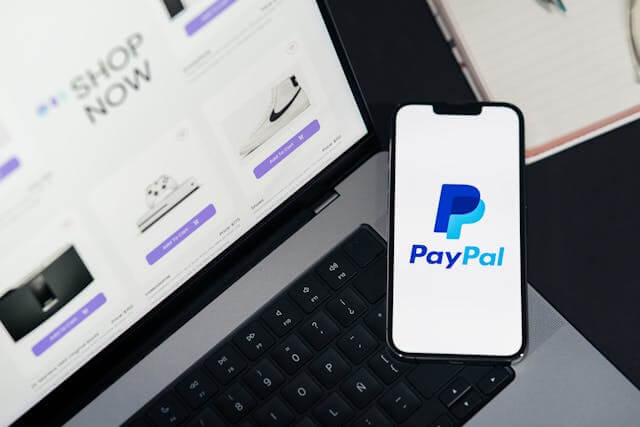
Alipay isn’t the only digital wallet in China, but it’s one of the most widely used. Here’s how it compares to other popular payment methods:
| Payment Method | Best For | Key Features | Limitations |
| Alipay | Everyday payments, online shopping, travel | Supports foreign cards, English interface, accepted almost everywhere in China | Some features restricted for non-residents; limited outside China |
| WeChat Pay | Messaging + payments in one app | Integrated with WeChat, works for chat, bills, transfers, and QR code payments | Often requires a Chinese bank account for full access |
| PayPal | Global online payments | Accepted by many international platforms, good for cross-border eCommerce | Rarely accepted by Chinese merchants or suppliers |
| UnionPay | In-person payments at Chinese ATMs/stores | China’s national card network, accepted widely at physical locations | Not as mobile-friendly; not a digital wallet |
| Credit/Debit Cards | Travelers with travel-focused cards | Easy to use if accepted; no extra apps needed | Many merchants in China don’t accept foreign cards directly |
| TourCard (via Alipay) | Prepaid option for tourists | Load CNY, good for small merchants that don’t accept foreign cards | Requires top-up and charges a small service fee |
FAQs
How Do I Use Alipay for the First Time?
Download the Alipay app, sign up with your international phone number, and switch to the international version. Then link your credit or debit card and you’re ready to start paying by scanning QR codes or using your own payment code.
How Much Does Alipay Charge per Transaction?
Alipay itself doesn’t charge transaction fees when using a linked international card. However, your card issuer may charge foreign transaction or currency conversion fees, so it’s best to check with your bank.
Can I Use Alipay Without a Chinese Bank Account?
Yes. In 2025, Alipay allows foreigners to register with an international number and link foreign-issued cards like Visa, Mastercard, or American Express—no Chinese bank account required.
Does Alipay Support USD or Only Rmb?
Transactions in China are processed in RMB (Chinese Yuan). If you link an international card, Alipay will automatically convert your local currency into RMB at the time of purchase.
What’s the Best Way to Top Up Alipay from Outside China?
Most users don’t need to top up—Alipay charges your linked card directly. But if needed, you can use the TourCard mini program within Alipay to preload RMB, especially in areas where foreign cards may not be accepted.
Can I Use Alipay for My Online Business?
Alipay can be used to pay Chinese suppliers or manufacturers for dropshipping and sourcing. If you’re running an online store, you may not be able to receive payments through Alipay unless you’re a registered Chinese business.
Is Alipay Better than PayPal for China Payments?
Yes—for payments within China, Alipay is more widely accepted and integrated into everyday transactions. PayPal is better for global use but is rarely accepted by Chinese retailers or suppliers.
Conclusion
Alipay has made it easier than ever for foreigners to navigate China’s digital-first payment landscape.
Whether you’re visiting for travel or sourcing products for your business, it offers a convenient, secure, and widely accepted way to pay—no Chinese bank account needed.
With support for international cards, an English-friendly interface, and tools like TourCard and real-time currency conversion, Alipay is a must-have app for anyone spending time in China or working with Chinese suppliers.
If you’re planning to buy from China or grow your eCommerce business, getting comfortable with Alipay is a smart move that can save time, money, and hassle.
Finding a reliable payment platform is just one part of the journey.
The next step is finding a trusted partner to help you source quality products from China, communicate with suppliers, and handle fulfillment with ease.
That’s where NicheDropshipping comes in. From product sourcing and negotiations to quality inspections, we’ll support you every step of the way—so you can focus on growing your business.
Ready to make sourcing from China easier and more profitable? Get in touch with us today and start sourcing smarter.
